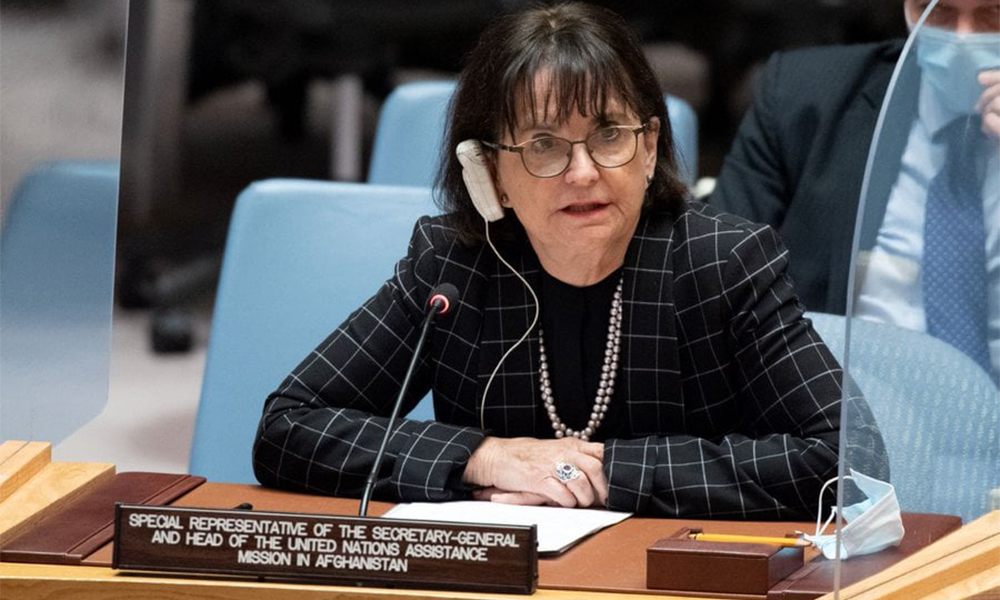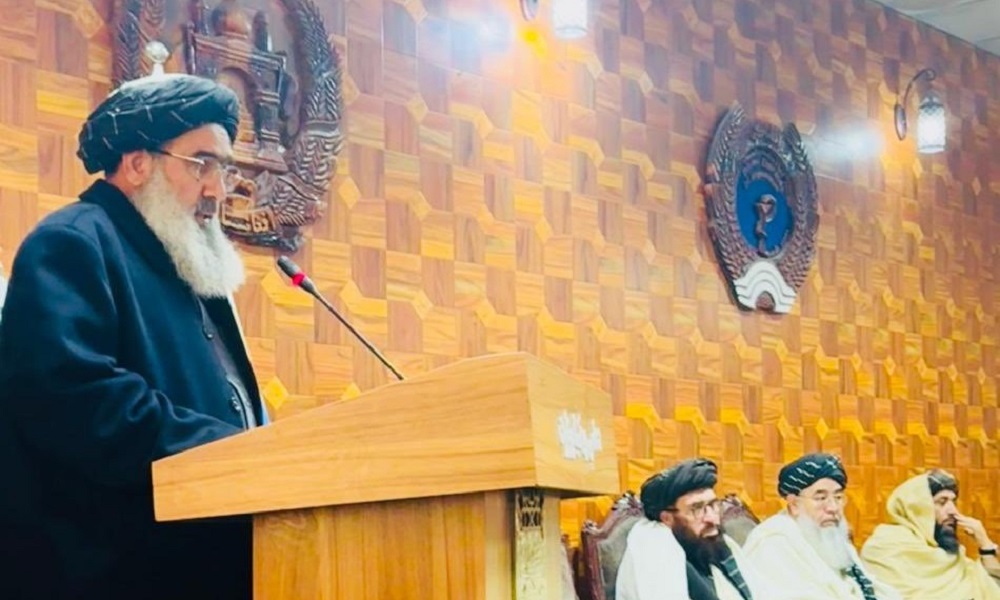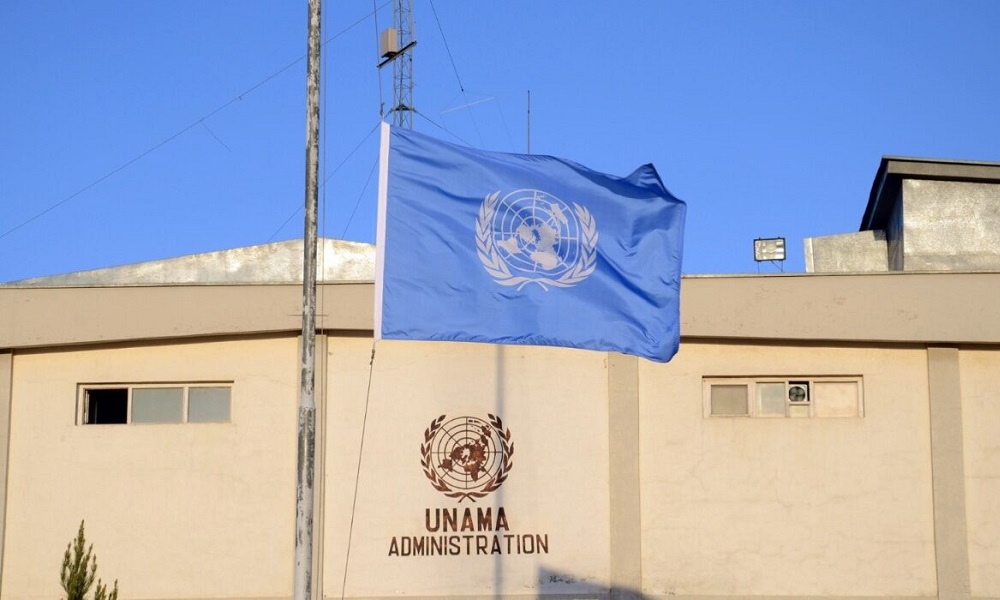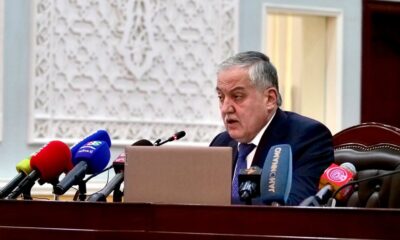Latest News
Abandoning Afghanistan now, amid crisis, would be ‘historic mistake’

Urgent steps must be taken to address the looming humanitarian crisis in Afghanistan and stave off economic collapse, speakers at Wednesday’s UN Security Council meeting on Afghanistan said.
“To abandon the Afghan people now would be a historic mistake — a mistake that has been made before with tragic consequences,” said Deborah Lyons, the Secretary-General’s Special Representative and Head of the United Nations Assistance Mission in Afghanistan (UNAMA), who said that the Islamic Emirate of Afghanistan’s (IEA) takeover has left the Afghan people feeling abandoned, forgotten and punished by circumstances that are not their fault.
Lyons said that engagement with the IEA administration over the past three months in Kabul and the provinces have been “generally useful and constructive”, and that the new government want to have a United Nations presence and international recognition, and is looking to overcome the trust deficit between them and the international community.
She said gaps remained however, including the issue of inclusiveness in the government.
According to Lyons, UNAMA has not shied away from raising difficult issues with the IEA, particularly on women’s rights and girls’ education.
She said the IEA has taken cognizance of such concerns, but they have made it clear that for now there are limits to concessions they are willing to make on some issues.
Lyons also said the IEA has not been able to stem the expansion of the Islamic State (ISIS-K/Daesh), which has become increasingly active, “stepping up attacks from 60 in 2020 to 334 in 2021.” She said the group has gained ground across all provinces.
Addressing the dire humanitarian situation in the country, she said it is preventable, as the paralyzed economy is largely due to financial sanctions.
With the winter approaching, she said, up to 23 million Afghans will be in crisis or emergency levels of food insecurity. In addition, while the risk of famine was once restricted to rural areas, 10 out of 11 of Afghanistan’s most densely populated urban areas are now anticipated to be at emergency levels of food insecurity, she said.
Lyons cautioned that the continuing deterioration of the economy threatens to heighten the risk of extremism, adding that the paralysis of the banking sector could push more of the financial system into unregulated informal money exchanges which can facilitate terrorism, trafficking and drug smuggling. “Such pathologies will first affect Afghanistan and then infect the region,” she warned.
According to the UN, close to 23 million people need urgent humanitarian assistance and poverty is widespread, with Afghanistan poised to experience “near-universal poverty” — a 97 percent poverty rate by the middle of 2022.
Council members noted that with the economy on the brink of collapse, aid alone cannot adequately address the crisis. In turn they urged that the UNSC must find ways to address the current banking problem and continue to exempt humanitarian and service-delivery operations from sanctions.
They also said the dormant peace process that began in Doha must be resuscitated, hold the IEA to commitments they made and hold it accountable for past and ongoing violations of human rights.
The Council must also engage Afghans not as victims, but as stakeholders in building sustainable peace in Afghanistan, the members urged.
In the Council discussion, members also called for immediate and unhindered assistance. Some delegates condemned the recent spate of terrorist attacks, while others raised concerns about the repression of the rights of women, protesters and journalists, and reports of human rights violations, including arbitrary executions.
China’s delegate said Afghanistan must be able to pursue a sound path towards development and called on the World Bank and the International Monetary Fund (IMF) to consider the resumption of financial support.
“When teachers and doctors have not received salaries for half a year, where does one begin to speak of girls’ education, or fighting the pandemic?”, he asked, adding that such measures are morally unacceptable and worsen the humanitarian crisis.
Pakistan’s representative also called for the lifting of the freeze on Afghanistan’s assets, noting that his country has committed $30 million in assistance to the country, together with wheat, rice, emergency medical supplies, and other essential items.
Latest News
Ministries of Public Health and Higher Education sign cooperation agreement

The Ministry of Public Health announced on Tuesday it has signed a cooperation agreement with the Ministry of Higher Education aimed at expanding scientific, research, educational, and technical cooperation.
At the signing ceremony held in Kabul, Noor Jalal Jalali, Minister of Public Health, said that the agreement would lead to significant improvements in the capacity-building of students and doctors, ensure that research is conducted based on evidence, and enable the collection of accurate data.
Meanwhile, Neda Mohammad Nadeem, Minister of Higher Education, described the agreement as beneficial to the public and to both institutions, stressing the need to train individuals at universities who can contribute to social development and make the country self-sufficient in the public health sector.
Latest News
UNAMA holds new round of Working Group meetings on counter-narcotics and private sector

The United Nations Assistance Mission in Afghanistan (UNAMA) has convened a new round of Doha Process Working Group meetings focusing on counter-narcotics and private sector development.
The meetings, held in Kabul on February 3 and 9, brought together representatives of UN member states and international organizations, officials of the Islamic Emirate, and subject-matter experts.
According to UNAMA, discussions in the counter-narcotics working group centered on efforts by Islamic Emirate authorities and the international community to support alternative livelihoods for Afghans previously dependent on poppy cultivation and the illicit opium trade. Participants also reviewed drug-use prevention and treatment initiatives, as well as law-enforcement measures to curb narcotics production and trafficking.
The private sector working group focused on job creation and entrepreneurship, with particular attention to women’s participation in the private sector, market integration, access to finance, and the development of private banking and financial infrastructure.
UNAMA said both working groups identified priority areas for enhanced engagement and explored more effective and sustainable approaches to supporting Afghan men and women. Participants also examined the linkages between the two areas, noting that private sector development is a key source of livelihoods, while counter-narcotics efforts contribute to Afghanistan’s economic and social stability.
The working groups were established following the third Meeting of Special Envoys held in Doha, Qatar, in June and July 2024, in line with recommendations of the Independent Assessment endorsed by the UN Security Council. The process aims to promote more coherent, coordinated, and structured engagement with Afghanistan’s de facto authorities for the benefit of the Afghan people.
UNAMA added that stakeholders engage in the working groups on an ongoing basis, with full-format meetings convened periodically. Since their establishment, the groups have improved information-sharing, helped mobilize additional resources, and facilitated expert exchanges to strengthen support for the Afghan people.
Latest News
Economic Commission approves national policy for development of agriculture

At a regular meeting of the Economic Commission chaired by Mullah Abdul Ghani Baradar, Deputy Prime Minister for Economic Affairs, the National Policy for the Development of the Agriculture and Livestock Sector was approved.
According to a statement from the deputy PM’s office, the key objectives of the policy include the mechanization of the agriculture and livestock sector; development of agricultural, irrigation, and livestock research and extension systems; management of irrigation systems; support for investment in these sectors; and ensuring public access to high-quality agricultural and animal products.
During the same meeting, the development plan for the fish farming sector was also approved.
Under this plan, through private sector investment, 7,700 small, medium, and large fish production and farming facilities will be established on 6,500 hectares of land in various parts of the country.
The statement added that the implementation of this plan will create direct employment opportunities for 50,000 people and indirect employment for 250,000 others.
-

 Latest News4 days ago
Latest News4 days agoAfghanistan to grant one- to ten-year residency to foreign investors
-

 Sport5 days ago
Sport5 days agoIndonesia shock Japan to reach historic AFC Futsal Asian Cup final
-

 Sport3 days ago
Sport3 days agoIran clinch AFC Futsal Asian Cup 2026 in penalty shootout thriller
-

 Latest News4 days ago
Latest News4 days agoAfghanistan says Pakistan is shifting blame for its own security failures
-

 International Sports2 days ago
International Sports2 days agoWinter Olympics gain momentum as medal table takes shape
-

 Latest News4 days ago
Latest News4 days agoTraffic police receive new cars
-

 Regional4 days ago
Regional4 days agoIran’s FM calls Oman-mediated talks with US ‘good start’
-

 Latest News3 days ago
Latest News3 days agoTajik foreign minister urges international community to help Afghanistan address its challenges
























